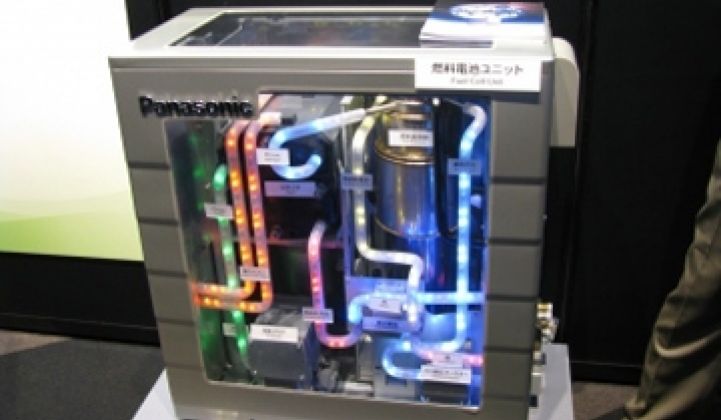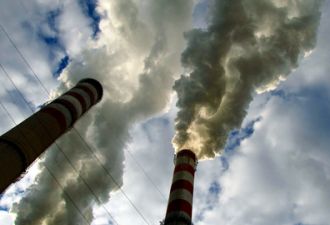The annual Consumer Electronics Show (CES) in Las Vegas isn’t really targeted at cleantech in any discernable way. This year’s buzz was around Microsoft’s announcement of Windows support for the ARM processor, a bevy (I read somewhere that there were 35 announcements) of new tablets and better 3D TV (for a more comprehensive look at CES, take a look at Scoble’s walking tour.)
That said, CES continues to evolve into a show that matters to the cleantech sector. This is especially true for home controls and smart appliances. In the category of smart appliances, no company is even worthy of a mention alongside LG. LG devoted more than half of its booth space to smart appliances. The futuristic appliances that we have all perpetually heard discussed for years -- internet-connected “smart” appliances -- are finally here. Each of the appliances boasted some degree of reduced energy consumption. All of the appliances also have Wi-Fi connectivity, which benefits each appliance in unique ways.
The refrigerator, for instance, has a “food management system” (a system!) that can tell you when your milk is past its expiration date. All of the appliances can self-diagnose via a phone/tablet app, and they can even directly contact customer service with repair instructions. The most surprising and interesting feature to me was the smart grid mode. In smart grid mode (assuming the owner has time-of-use rates from their utility), the appliance will run at the cheapest possible time.
The appliance will also track its own energy usage and can inform the user of the money or energy consumed during a given period of time. I suspect that this is overkill for most consumers today, especially considering the fact that most people don’t even have TOU rates. That said, variable pricing schemes are going to become increasingly common, and owning appliances that can intelligently select cheaper hours of operation will be extremely useful. In the meantime, I’m sure we’re going to see all the major appliances manufacturers follow suit.
The other significant cleantech trend at CES this year was home controls. If you went to CES last year, you probably noticed home controls were a big deal as well. I think what struck me the most this year was the breadth and maturity of these controls.
Z-Wave, ZigBee and Control4 all had massive booths showing off a variety of devices from products that do anything from controlling your stereo to video security systems and door-locking systems. For the cleantech-inclined, there were dozens of systems that measured energy usage at various levels of granularity in the home. There were also multiple solutions for lighting control as well as HVAC.
The barrier today continues to be cost -- many of these systems (especially the highly granular ones) are simply too expensive. As adoption increases (and it will, both through organic demand as well as various utility programs around the country), those prices are sure to decline. I wrote at the end of last year about the improvement of the channel for residential energy efficiency. Unfortunately, many people (including my family) just don’t have that option yet. Many of the systems that were shown at CES can be purchased through traditional consumer electronics channels and they perform a wide variety of tasks.
One other company worth mentioning is Panasonic. Panasonic had a rather large section of their booth where they displayed LED lights, battery packs for local energy storage (at a residential level) and even a personal fuel cell (pictured). I tried to understand the economic argument from Panasonic’s perspective for the fuel cell. Their argument hinges on whether you already have a natural gas hot water heater. If you don’t, the economics may work, but the representative in their booth was far from convincing. More interesting to me, however, was the presence of a fuel cell at CES in the first place. (Editor's note: the Panasonic fuel cell works in Japan because gas companies can't sell power and vice versa. Fuel cells represent one of the few ways for a gas company to gain market share.)
Don’t feel bad if you missed this year’s CES -- especially if you focus on cleantech. Hopefully this gives you some idea of what you missed. I believe we’ll continue to see more cleantech-related announcements at CES in the future. Drop me a line if you saw some other interesting cleantech stuff at CES and let’s talk about it!
***
Mike Dauber is a vice president at Battery Ventures. He co-authors the firm's Clean Makes Green blog. You can contact him at twitter at @mdauber.



